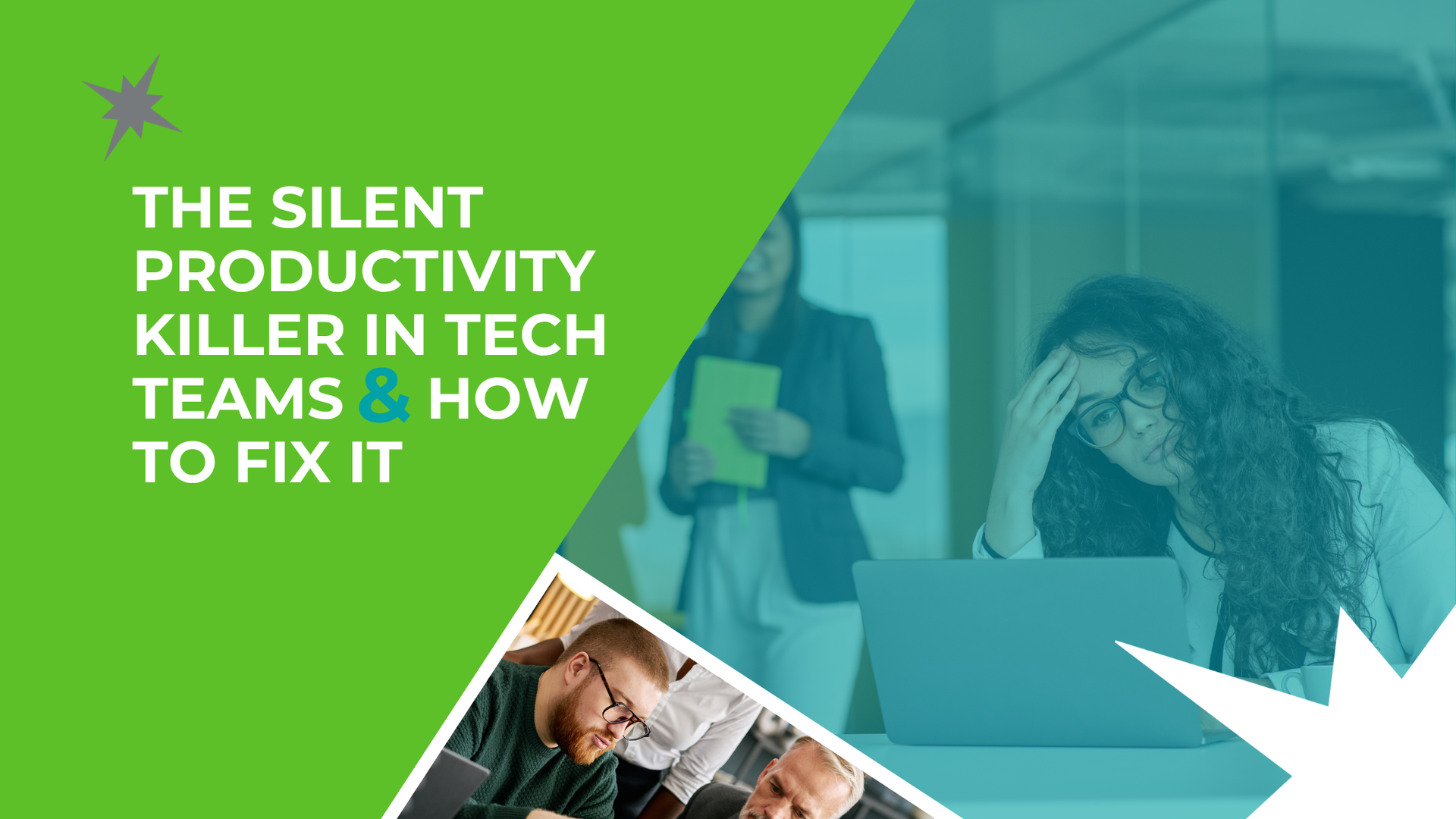News & Insights
< Back to Blogs
Which 3 Traits Are Essential When Interviewing For an IT Manager or Team Leader Role

You’ve got your foot in the door and landed a job interview for a role that’s going to drive your career forward. However, while you might have an idea of what you’ll be asked based on the requirements of the role, it’s critical that you do the necessary preparation to ensure that you stand out from the rest.
Throughout my career in Sydney’s IT recruitment industry, I’ve often come across highly skilled professionals who aren’t sure what qualities to emphasise when they’re on the cusp of securing a team leader or IT manager role. There are several key skills that employers are looking for at this level and being able to display them effectively is critical.
Here are a few of the most in-demand traits, as well as some ways for you to demonstrate to the interviewer that their search ends with you.
1. People Skills
IT is no longer a department that sits in isolation, and with organisations constantly transforming themselves to remain competitive, IT is a support function enabling the business to reach these goals. Due to the necessary close working relationship between the business and IT, excellent people skills are vital to progress into leadership and management roles. Stepping up in your career means being able to showcase your people skills in the job interview and proving to your potential employer that you’ve got what it takes to thrive.
In addition to the required technical expertise, today’s employers are looking for people who also possess the following qualities: emotional intelligence, commercial awareness, flexibility, collaboration, leadership characteristics, and effective multi-level stakeholder engagement and relationship building skills (both internal and external).
Consequently, well-developed communication skills are make-or-break for many of the roles on the path to IT leadership. IT professionals must also be able to clearly convey highly technical information to non-technical people with ease. One way to do this is to highlight relevant examples where you’ve successfully managed people in different situations. If there was adversity involved, convey what steps you took to overcome it. Don’t be afraid to say that in retrospect you may have handled the situation differently to arrive at an even more optimal outcome – this demonstrates you’re willing to improve and have learnt from past experiences.
It’s important to be personable and show genuine interest and engagement in what your interviewers have to say. Maintain good eye contact and be aware of what messages you are sending via your body language. Reading the interviewer’s body language can also be an effective tool to gauge how you are tracking during the interview. It’s imperative that you listen carefully to all of the questions asked, and if need be, seek further clarification on the question before going ahead and answering it. You will very easily lose the interviewer if you go off on a wrong tangent. Listening is a critical part of effective two-way communications, and if demonstrated well it’s a good sign that you’ll engage with others in the same way.
2. Strategic Nous
You’ve probably heard it before, but the business world is constantly changing and being disrupted. Technology is a significant driver of this change and being able to anticipate the challenges that lie ahead is critical to the long-term success and sustainability of any organisation. According to a survey by Harvard Business Review, 80% of respondents predict their business will soon be affected by digital disruption, but nearly half of those feel unprepared to respond to it. Employers therefore want to invest in people that are flexible, not only fitting the bill right now but who will continue to add value and guide the organisation through change well into the future.
You don’t necessarily have to have a track record of world-changing solutions at your disposal, but you need to be able to showcase your ability to think outside of the work in front of you. Team leadership and management roles are dynamic, and it’s crucial to look beyond your individual to-do list and consider what the team is doing as a whole to deliver an optimal result for the business. Even something as simple as providing examples of where you changed, streamlined, or improved processes in previous roles and what effect that had, can show that you’re thinking in the right way.
3. A Proactive Mindset
In higher level roles, it becomes much more dangerous to be reactive. Employers want to hire people who can take the initiative to implement solutions before the issue becomes a problem.
A great way to emphasise your proactivity is to be well prepared for the interview. You’re being considered to fulfil a business need, and if you walk into the interview knowing what that is and how you can specifically address it, you’ll more than likely leave a strong impression. This involves:
- Understanding the organisation: Ensure you know who they are and what they do, think about what their short and long-term goals might be, and recognise where your role fits into that. Do your research and follow any recent news or developments happening within the company. Similarly, have an interest in the business itself.
- Appreciating the ethos of the company: Get an idea of what their culture is like and what their values are. Have a look at the company website and social feeds and ask your peers who work or have worked there in the past for some insight. At the interview, if the opportunity presents and it is appropriate, ask for a tour around the office. Take note of how people conduct themselves, and whether they seemed like they were enjoying their work day.
- Knowing what the role is: You need to know who your key stakeholders are, the kind of work you’ll be doing, and exactly what you’re being hired for. Understand how your skills and experience will complement and optimise their existing status quo and where they are looking to get to. Job descriptions are often a goldmine for this kind of information.
- Don’t go over the top: There is a fine line between going in and trying to impress with your knowledge and solving a ‘perceived’ problem that you may not have all of the information to do effectively. It can come off as arrogant and has the potential to frustrate the interviewer. Oftentimes, there are many moving parts to business problems, and if put in this position, it is important to acknowledge that you are working with limited information, and that there could be other factors outside your knowledge that could contribute to a different solution being proposed.
- Ask the right questions: Another key part of your interview preparation is to come with several well thought out questions that you would like to ask them, ensuring that they are still relevant after the conversation that you have had with them. This shows that you are interested and have given the role serious consideration. Employers want to know that you want them just as much as they want you. If given the opportunity, let them know that you are keen for the opportunity and your reasons why.
When working with a recruiter, lean on them to provide as much information as possible in relation to the organisation, company culture, hiring manager, the role itself and context of the role. They are there to support you through the process. In addition, ask if they are aware of how the interview process will play out and what style of questions may be asked.
Summary
Naturally, there are a number of other skills that are important when interviewing for IT jobs, however the above are traits that people often find difficult to articulate. The key is to provide genuine and relevant examples, and to remember that no matter where you are in your career, the importance of preparation cannot be underestimated.
Contact Enterprise IT Resources if you’d like more great insights on navigating IT recruitment in Sydney. Our specialist team will provide all the support you need to succeed in every stage of the hiring process and help you secure your dream IT manager role, so get in touch today.
Share This Article
Recent Articles

Filter By Category
Subscribe to our News & Advice












